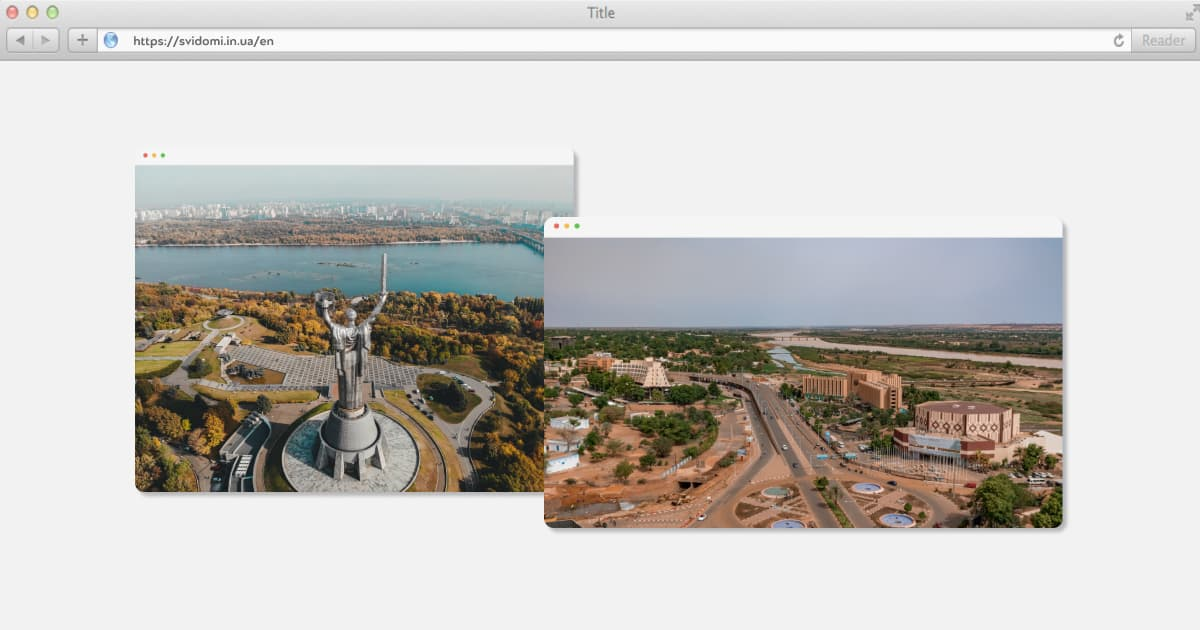Niger: The forgotten country in the headlines
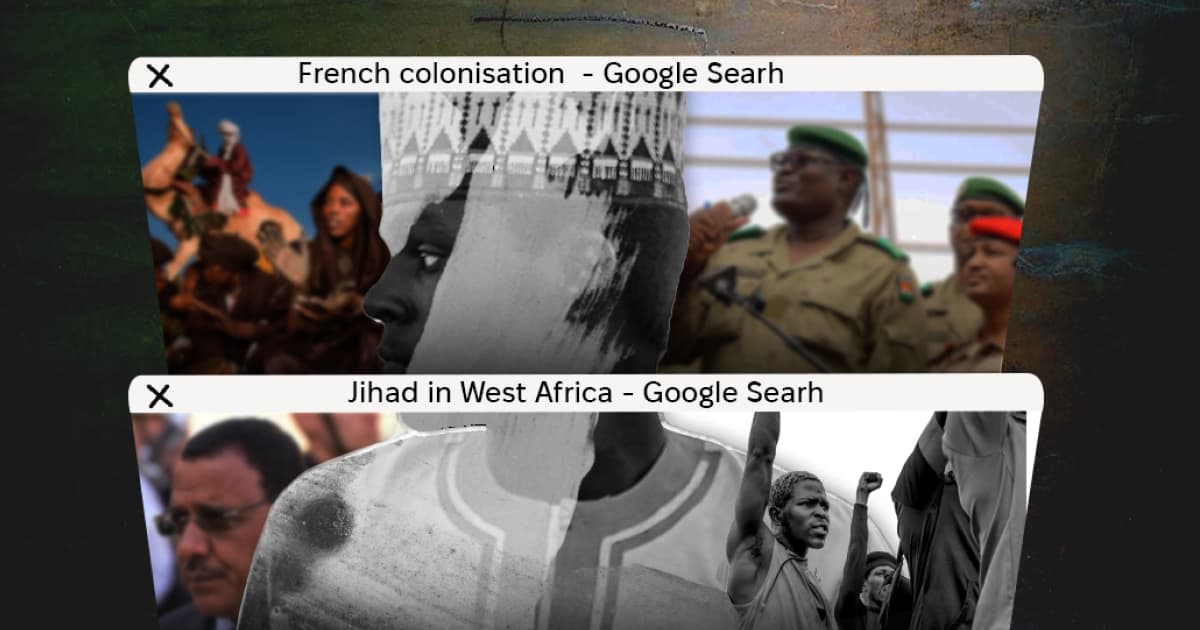
This country is rarely mentioned in the international media. There are not many researchers interested in it. So few that the historian Finn Fuglestad was constantly asked: "What are you researching, the history of Nigeria?" However, he was researching another country, the former French colony of Niger.
This is the version of the name of the West African state that is used in Ukrainian — /nɪˈɦər,/ [here, a glottal fricative /ɦ/ or /ʕ/ is used, it has no equivalent on English — TN]. However, in the Hausa language (the most common in the country), the name sounds different — /niːˈʒɛər,/ nee-ZHAIR. Recently, a mock conflict took place on Russian propaganda television: one of the propagandists used the Hausa pronunciation, to which Olga Skabeeva responded with a rant that the Russian language has the word "ni***r" and therefore the French name should not be used.
In fact, the name of the country comes from the largest river that flows through Niger and is called the same. It was first used by the traveller Leo Africanus in the 16th century, long before the French arrived on the continent. It is not known where he got the word from, but it is similar to the phrase "river of rivers" in the Berber languages — gher-n-gheren.
In any case, the name used in Ukraine today is a Soviet legacy. Ukrainians who were outside Moscow's influence used the /g/ consonant in the name of the country and the river. Ukrainian archaeologist and Africanist Yurii Shumovskyi wrote: "The lowlands above the Niger are covered with ancient dwellings, cemeteries, and tumuli." In the Soviet journal Nauka i Suspilstvo (Science and Society — TN) of 1986, we read: "To block the path of the desert, a 3000 km long hedge was created in the Republic of Niger."
Uncertainty about the country begins at the stage of its name. However, on July 27, 2023, Niger captured the attention of Western countries on both sides of the Atlantic Ocean. A coup d'état took place in the country, considered to be one of the most stable in the region. The military, led by Colonel Amadou Abdramane, came to power. They ousted President Mohamed Bazoum, who won the 2020-2021 elections. Observers from the Electoral Institute for Sustainable Democracy in Africa noted a number of violations during the voting but called the elections democratic.
Therefore, the current political situation in Niger may seem black and white. Nevertheless, it is not easy to get more detailed information about it, as there are not many experts covering the country. Most of the people from the Western think tank world who have written about Niger in recent weeks do not specialise in the country itself but in the West African region. Local researchers of Niger are also not easy to find. Svidomi spoke to a man who is both "here" and "there" — a German anthropologist, Dr Jannik Schritt, who worked in Niger in 2011-2014.
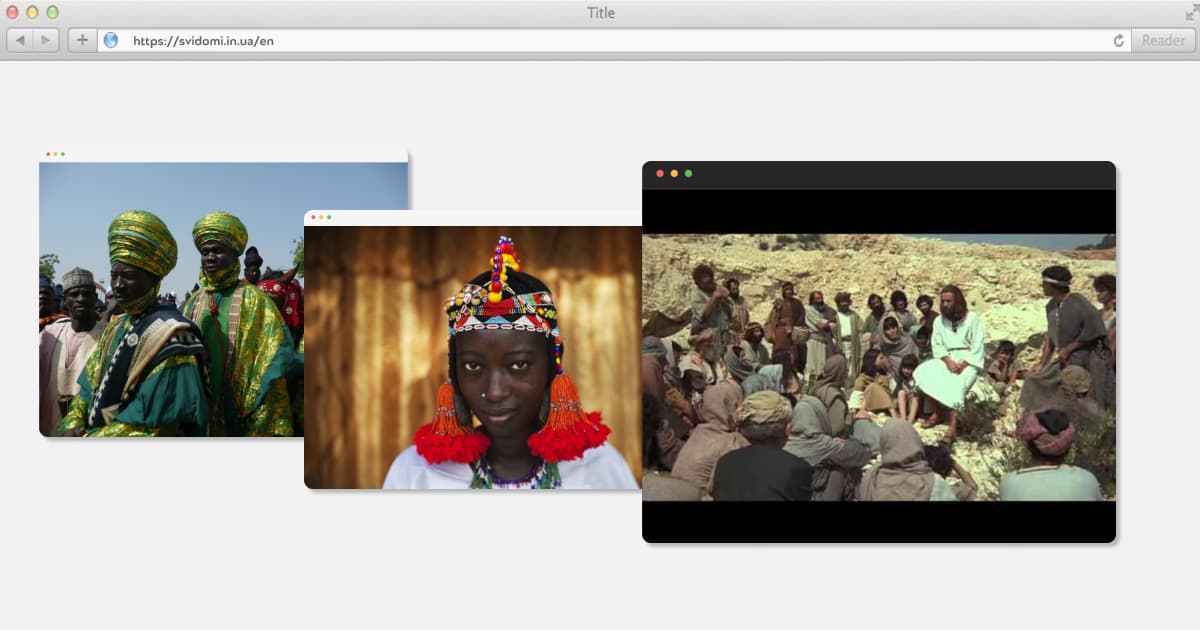
Why did you become interested in this topic?
— When I was studying ethnology at the University of Göttingen, there was a research project funded by the German Research Foundation. The research focused on oil production in Niger and Chad and its political and cultural consequences. I got a PhD position in the project and visited the country several times.
How much time did you spend in the country?
— I spent a year there in total but not in one trip. I came four times: first for three months, then for six months, then for three more, and finally for one more. Mostly I worked in Zinder, the former capital of the country, also in the south-east of the country, where an oil refinery was being built at the time, and also in Niamey, the capital.
How does one get to Niger from Europe?
— There are flights between France and its former colonies. I travelled from Göttingen to Hanover, flew to Paris, changed planes there, and flew to Niamey. And then I had to travel from Niamey to Zinder for 14 hours by bus, which is much longer than flying from Paris to Niger (the flight lasts about 5 hours — ed.).
What did you research specifically?
— My research primarily focused on the political dynamics and social conflicts associated with oil production. My theory was that these conflicts did not arise purely because of oil, as the "resource curse" theory suggests (an economic theory that states that an abundance of natural resources in a country leads to negative socio-economic consequences — ed.) Instead, they existed even before oil production began. The same applies to the alliances of power players.
Do you speak any local languages?
— I speak French, but I don't speak Hausa well. So I relied on French and worked with an interpreter when I needed to use this language.
What is the most important language for the country?
— Almost everyone will know Hausa, as it is the language that would be used for trade. Even though there are different ethnic groups in the country that speak different languages, they will use Hausa. French is spoken by those who have a school education. It is taught from the first grade. So the more time you spend at school, the better you know French. If you didn't attend it at all, you don't know it.
How did French colonisation affect relations between different ethnic groups?
— The city of Zinder, the former capital, was the most important in Hausaland, the territory in the centre of Niger where the Hausa people lived. The modern capital, Niamey, is located further west. It is the centre of the Zarma and Songhai peoples. There is a historical confrontation between the Hausa on one side and the Zarma and Songhai on the other. When the French colonised Niger, there was an influential sultanate in Zinder. Niamey, on the other hand, was a small village of fishermen.
That is why Zinder was initially the administrative centre of the colony, but the Hausa resisted the French, who moved the centre to Niamey. At the same time, there is another explanation: there were water shortages in Zinder, so the capital was moved to Niamey, a city on the river. However, there is also evidence that the Songhai and the Zarma cooperated more with the colonisers.
Have you ever worked in this desert region in the north of the country, where other people, the Tuareg, live?
— I have hardly ever been there. There was a difficult security situation there when I worked in Niger. In 2011, terrorists kidnapped two Frenchmen from a bar in Niamey and took them to the north. The Nigerien and French armies tried to free the kidnapped men, but the terrorists killed both of them.
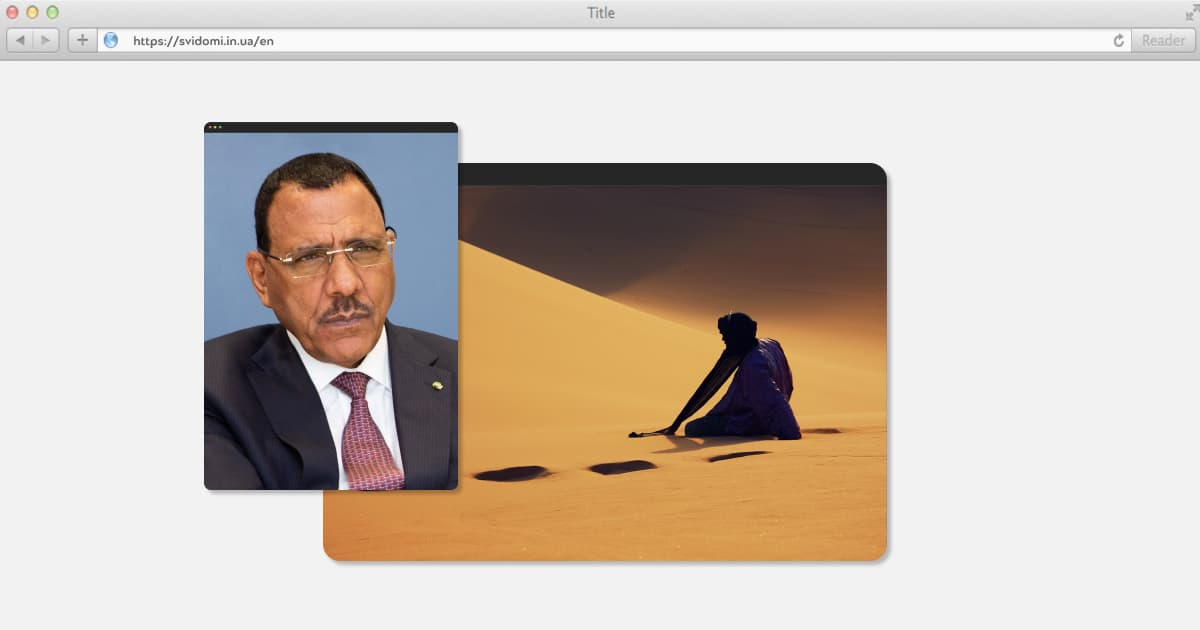
What role do Tuareg people play in the political life of the country?
— At first, the colonisers romanticised the Tuaregs, presenting them as "warriors from the desert." However, economic power was in the hands of the Hausa, and political power was in the hands of the Zarma. Therefore, Tuaregs felt marginalised. Since independence, the Tuaregs have rebelled three times.
Instead, under Bazoum and his predecessor Mahamadou Issoufou (Bazoum's fellow party member, president of the country in 2016-2021 — ed.), they held influential positions in the government. I believe that the situation in the north of the country has become calmer because of this. The former rebel leader Rhissa Ag Boula, who was Issoufou's close ally, has recently created an organisation that wants to return power to Bazoum.
What is the population's general attitude to the current coup?
— Part of the population, although not immediately, took a rather favourable position toward the junta. Among Nigeriens, anti-Western and anti-French views are widespread, in particular because of the colonial history, which was sometimes quite brutal (for example, in 1899, a French expedition killed all the inhabitants of the village of Koran Kalgo, including minors, and then dumped the bodies of the dead in a well to poison them — ed.)
People have a feeling that Europeans continue to exploit them despite the country's independence. How can it be that we are so poor (according to the Oxford Poverty and Human Development Initiative methodology, Niger ranks first or second in poverty rankings — ed.), even though we have such rich natural resources (5% of the world's proven uranium reserves, as well as oil, coal, and gold deposits — ed.)? They think that the French are profiting from them.
Because of this, there are people who see a democratic component in the coup. For people, it is more important to rebuild relations with the West than to preserve the multi-party system. It is generally perceived negatively by many. Such views are especially common among young people who did not experience military rule in the XX century.
Such views contradict the image that is common in the Western media. They say that Niger is the most democratic and stable country in West Africa. What is your attitude to this portrayal of the country?
— I am critical of it. Yes, indeed, in 2021, President Issoufou peacefully and democratically handed over power to Bazoum — for the first time in the history of independent Niger (until now, the military has seized the presidency from each other, with the exception of the first president, Hamani Diori, who seized power from the colonisers — ed.) But it seems to me that Issoufou simply had no other option. He could not have changed the constitution to get a third term (during his two legal terms in office, Issoufou insisted on preserving the constitution, and in 2020 he even received the Ibrahim Prize for Achievement in African Leadership for this reason — ed.) During the transfer of power, there was an attempted coup d'état to prevent Bazoum's inauguration. The coup failed, so Issoufou could not take advantage of it.
At the same time, many Nigerians see Issoufou as someone who has real power and plays with other political figures, pulling their strings. In addition, during his rule, Issoufou managed to effectively fight against the opposition. He imprisoned leaders and formed alliances with other opposition parties. As a result, representatives of these parties were appointed as advisers in many ministries.
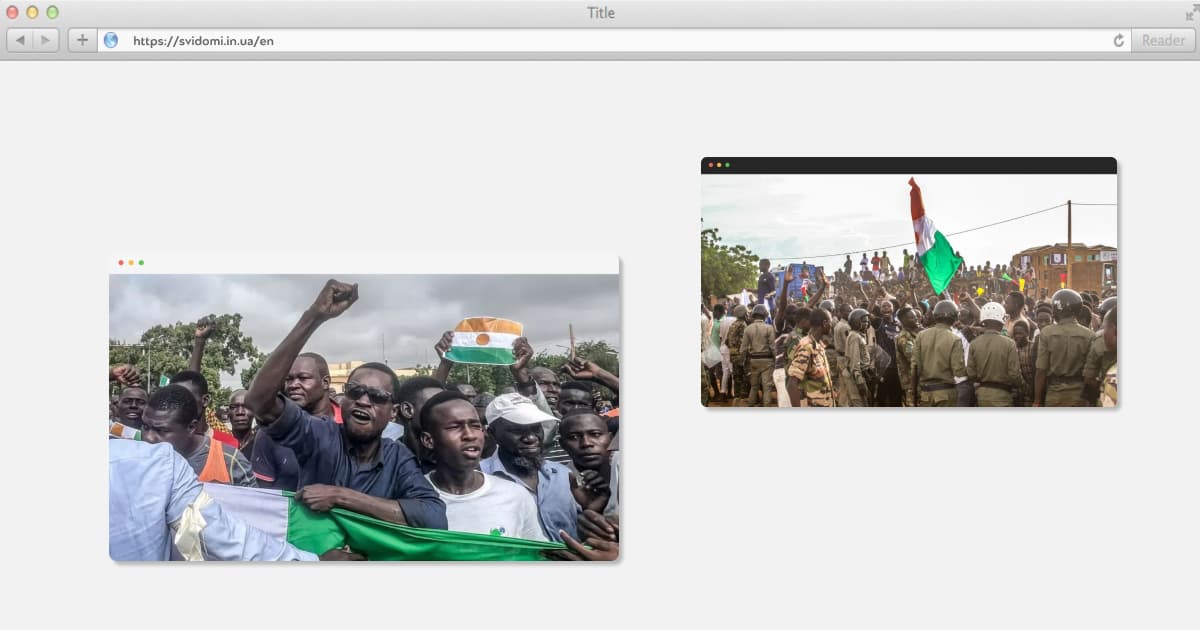
On August 3, The Washington Post published an opinion piece written by Bazoum, even though the President is being held captive by the junta. I was surprised by this, weren't you?
— Me too. We know that he is being held captive in the presidential palace. He complained that the electricity was cut off and that he was running out of food. There were also reports of his poor health. However, it appears that his phone was not taken away from him. This is strange. I don't know why this happened. There are many rumours that Bazoum is in some kind of bunker and that the junta does not control him.
In Niger, in general, a lot of information is spread this way — through rumours. It's a tradition. There are also different versions of why the coup took place. One of them is that Issoufou organised the coup to deprive Bazoum of power and put his own son in his place (former President did not comment on the coup for a long time, but on August 17, he spoke out against it — ed.) The second version is that Bazoum wanted to dismiss the head of the presidential guard, so he organised the coup. The third is that law enforcement officers were investigating corruption in the army, so the military decided to stop them this way. However, this is all speculation at the moment.
Before the interview, we had already discussed Russia's role in Niger. The Soviet Union had almost no presence in the country, as France strategically marginalised socialist parties even after Niger's independence. According to the Stockholm International Peace Research Institute, the USSR did not supply arms to the country at all. After the collapse of the Soviet Union, Russia supplied Niger with helicopters, and Ukraine with two fighter jets. What do Nigeriens know about Russia in general?
— Many people don't know anything about Russia at all. They also don't understand how the US and France (both countries have military bases in Niger, which have been fighting Islamists for about 10 years — ed.) have been fighting terrorism in the West African region for so long and cannot win, despite having super-modern equipment. Every year, this problem is only growing (according to the Armed Conflict Location & Event Data Project, 2,945 people died in Niger in 2021-2023 due to armed conflicts, and 2,361 in 2018-2020). This creates a local narrative that Western countries are not fighting terrorists but rather for the sake of controlling natural resources, such as gold.
Instead, rumours are spreading that the Wagner PMC does not take prisoners and that Wagner is waging a tough war against terrorists. Therefore, people have a naïve idea that it is enough to invite a Russian PMC to quickly solve the problem. This is not primarily sympathy for Russia but anti-French sentiment.
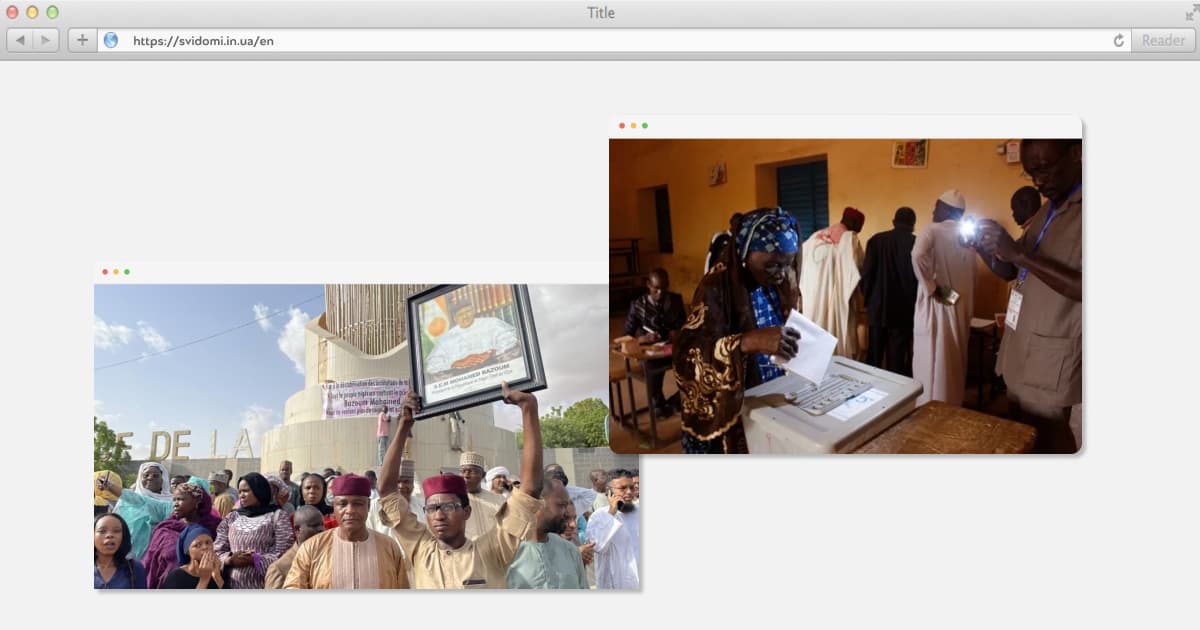
Challenges for Ukraine
In early August, the Western media, including The Economist, predicted a major war in the West African region. On the one hand, the Economic Community of West African States, which opposes military coups; on the other, pro-Russian juntas in Niger's neighbours Mali and Burkina Faso. So far, it has not happened, although the Economic Community continues to make statements about its readiness to intervene in Niger to restore constitutional order.
Such a war would have humanitarian consequences and could reduce the Euro-Atlantic bloc's attention to Russia's full-scale invasion of Ukraine. This is a short-term threat. But there is another, more strategic issue.
The dynamics described by Dr Schritt are not new. It is precisely because of disillusionment with the West that many countries in the Global South fell into the sphere of influence of the Soviet Union. It seemed that a full-scale invasion would have destroyed the appeal of the Russian Federation. However, even in the age of globalisation, there are still societies where information is less accessible than elsewhere. And even if Nigeriens knew about Wagner's crimes against Ukraine, would they believe this information heard on French radio?
How should Ukraine's diplomacy of persuasion towards the Global South be built, then?
